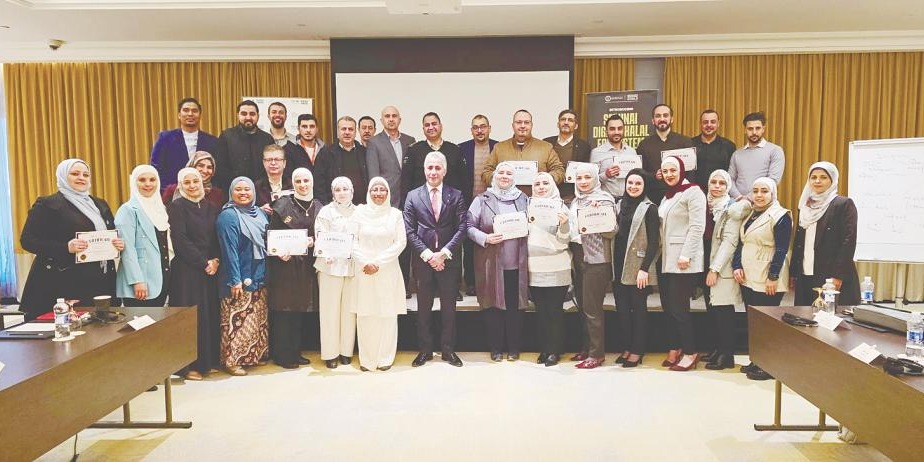
Halal industry roundup: Jordan, Malaysia partner in halal ecosystem development
Here's a roundup of key developments across the halal industry ecosystem during the month of February.
Editor's note: Jordan is joining hands with Malaysia to bolster its halal ecosystem, while Korea cosmetics firm is affirming its expansion plans by securing halal certification from Indonesia.
Also, welcome news for Pakistani Albaik fans, with the Saudi fast food giant looking to open branches in key cities.
Company News
South Korea / Indonesia
Cosmecca Korea's global expansion bolstered by Indonesian halal certification
Cosmecca Korea has obtained halal certification from the Majelis Ulama Indonesia (MUI), enhancing its global expansion efforts, particularly in the ASEAN and Middle East markets.
Announced in February, this certification is crucial as Indonesia, home to the largest Muslim population, will require mandatory halal certification for cosmetics starting next October. (Business Korea)
Saudi Arabia / Pakistan
Saudi fast-food giant Albaik set to start operations in Pakistan
Saudi fast-food chain Albaik is set to begin operations in Pakistan, with plans to open outlets in major cities, according to Pakistani commerce minister Jam Kamal Khan.
Following a visit to Albaik’s facilities and meetings with Pakistani employees, the minister announced that Albaik's launch plan is nearing completion after signing a memorandum of understanding.
Discussions during the Made in Pakistan exhibition focused on business collaborations and investment opportunities for Saudi brands in Pakistan. (Dawn)
Trade Developments
Jordan / Malaysia
Jordan-Malaysia in halal ecosystem development
Jordan is enhancing its halal ecosystem by partnering with Malaysia's Serunai Commerce through the Islamic Development Bank (IsDB).
An 11-day Diagnostic Mission assessed Jordan’s existing halal certification capabilities and explored strategic improvements. This mission involved key ministries and regulatory bodies, including the Jordan Standards and Metrology Organisation and the Ministry of Agriculture, to identify challenges, capacity gaps, and opportunities for strengthening Jordan's role in the global halal economy.
(Halal Focus)
Kyrgyzstan / Brunei
Kyrgyzstan offers Brunei cooperation in energy and halal industry
President of Kyrgyzstan Sadyr Japarov met with Sultan of Brunei Hassanal Bolkiah to discuss enhancing bilateral cooperation.
Japarov emphasized the importance of inter-regional partnerships between Central Asia and ASEAN, detailing Kyrgyzstan's reforms and development projects, particularly in transportation and international corridors.
He proposed collaboration in energy, IT, raw materials processing, and the halal industry, inviting Brunei investors to engage in Kyrgyz projects. (24 KG)
Uzbekistan / Malaysia
Uzbekistan, Malaysia agree to develop roadmap for bilateral agreements implementation
Uzbekistan and Malaysia have agreed to develop a roadmap for the implementation of mutual agreements following a meeting between President Shavkat Mirziyoyev and Prime Minister Anwar Ibrahim.
The discussions focused on enhancing trade, economic, and investment cooperation, leading to plans for a preferential trade agreement, industrial exhibitions, and an industrial cooperation program.
The leaders designated 2025-2026 for innovative development in their partnership, identifying sectors for collaboration, including petrochemicals, electronics, and green energy. (Trend News Agency)
Australia / Malaysia
Australian halal red meat headed to Malaysia
Australian halal red meat will soon be available in Malaysia following the approval of seven new export establishments, bringing the total to 25 halal-certified Australian operations.
This development positions Australia as a major supplier of halal beef and sheep meat to Malaysia, a market valued at over $333 million in 2023/24.
Agriculture Minister Julie Collins attributed this success to a coordinated government and industry effort. (Food Processing)
Regulatory
Uzbekistan
Uzbekistan to allow halal labeling for certified products and services
The document approves measures for certifying products and services as halal, including establishing certification bodies and prioritizing standards from the Standards and Metrology Institute for Islamic Countries (SMIIC).
It allows for the labeling of certified halal products starting May 1, 2025, and mandates periodic assessments for compliance.
The Uzbekistan Technical Regulation Agency and the Committee on Religious Affairs are responsible for accrediting the "Halal" certification body within six months, involving recognized international organizations. (KUN.UZ)
UPCOMING EVENTS :
- Albania Halal Expo 2025 – Albania – Feb 21-23, 2025
- Halal Verse Summit – UAE – Feb 25-26
- Makkah Halal Forum – Saudi Arabia – Feb 25-27
- IFANCA Halal Food Conference – Chicago, USA – April 13-15
- Russia Halal Expo – Russia – May 14-16
- Halal Expo Canada 2025 – Canada – May 27-28, 2025
- Halal in Travel Global Summit 2025 – Singapore – May 27-29
- Saudi International Halal Expo – Saudi Arabia – Nov 11-13
- Halal Trade Expo – UAE – Nov 17-19
- Türkiye Halal Expo – Türkiye – Nov 26-29
